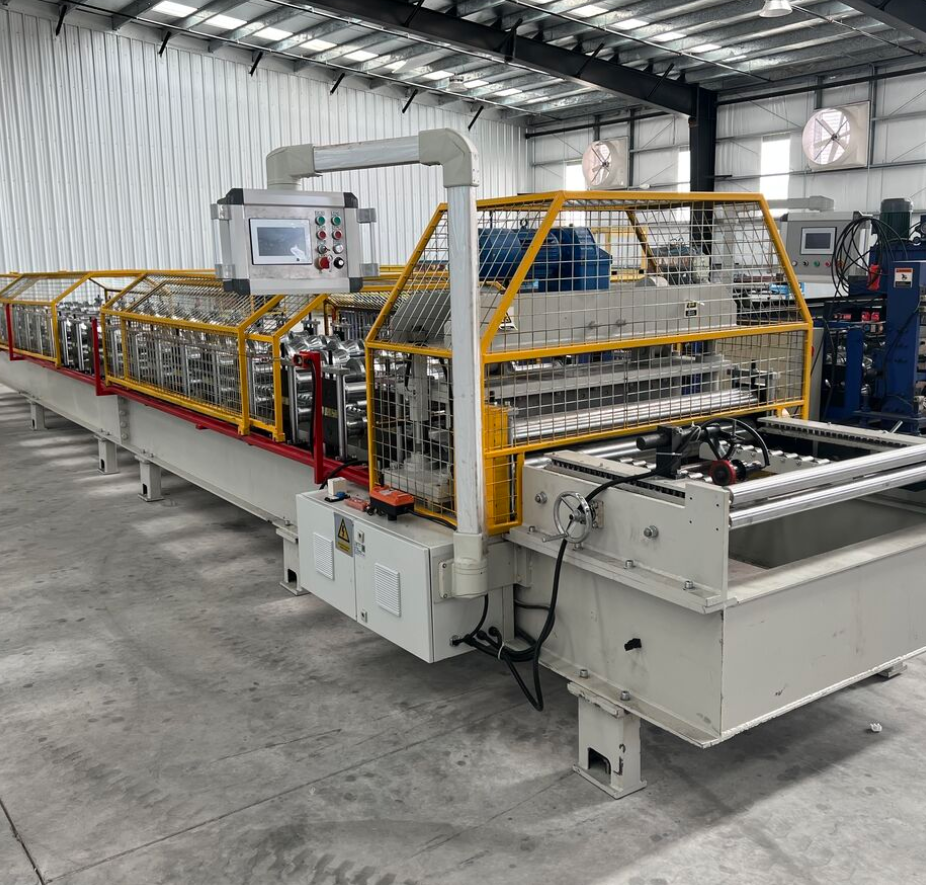
Top 5 Roofing and Cladding Profiles Made with Roll Forming Machines in the UK
Below, we explore the top 5 roofing and cladding profiles commonly produced with roll forming machines in the UK
Posted on Thursday, July 17, 2025
In the UK construction and manufacturing sectors, roll formed metal roofing and cladding profiles are widely used for commercial, industrial, agricultural, and even residential applications. From lightweight agricultural sheds to high-end architectural buildings, these profiles offer durability, speed of installation, and aesthetic appeal.
Below, we explore the top 5 roofing and cladding profiles commonly produced with roll forming machines in the UK, including details on their design, material specs, and industry applications.
Corrugated Panels
Overview:
Corrugated panels are one of the most traditional and widely recognised metal sheet profiles. With a consistent wave-like pattern, they offer flexibility and strength while remaining cost-effective.
Key Features:
-
Typically sinusoidal in shape
-
Excellent water runoff
-
Lightweight and easy to install
-
Used for both roofing and cladding
Common Specs:
-
Pitch: 76.2 mm
-
Depth: 18 mm
-
Material thickness: 0.4–0.7 mm
-
Width (cover): 914–990 mm
Applications in the UK:
-
Agricultural barns and storage units
-
Sheds and garages
-
Industrial warehouses
-
Temporary and site buildings
Materials Used:
-
Galvanised steel
-
Pre-painted steel (Colorcoat)
-
Aluminium (for lightweight structures)
IBR Profiles (Inverted Box Rib)
Overview:
IBR stands for Inverted Box Rib, a high-strength roofing and cladding profile originally developed in South Africa but now widely adopted in the UK for industrial and agricultural buildings. Its deeper rib design provides enhanced load-bearing capacity.
Key Features:
-
Trapezoidal rib pattern
-
Superior water resistance
-
Suitable for longer spans
-
Efficient in both roofing and vertical cladding
Common Specs:
-
Pitch: 171 mm
-
Depth: 36–38 mm
-
Material thickness: 0.5–0.8 mm
-
Width (cover): 686–890 mm
Applications in the UK:
-
Industrial warehouses
-
Cold storage units
-
Agricultural sheds
-
Modular building roofs
Materials Used:
-
Galvanised steel
-
Pre-coated steel
-
Aluminium
Box Profile Panels (Trapezoidal Panels)
Overview:
Box profile panels—also known as trapezoidal panels—are the most common steel roofing and wall cladding profile used in UK commercial and light industrial buildings. They combine strength with a modern, clean appearance.
Key Features:
-
Angular, geometric look
-
Provides high load strength
-
Available with or without anti-condensation backing
-
Easy to fix with standard fasteners
Common Specs:
-
Pitch: 166 mm or 200 mm
-
Depth: 32 mm or 34 mm
-
Material thickness: 0.5–0.7 mm
-
Width (cover): 1000 mm (approx.)
Applications in the UK:
-
Industrial buildings
-
Commercial roofs and walls
-
Domestic outbuildings
-
Educational buildings
Materials Used:
-
Pre-painted steel (Colorcoat HPS200 or Prisma)
-
Galvanised steel
-
Polyester-coated steel
Standing Seam Panels
Overview:
Standing seam profiles are the go-to solution for high-specification architectural roofing. Offering a sleek finish with hidden fixings, they are ideal for projects requiring a modern look and superior weather performance.
Key Features:
-
No exposed fixings
-
Excellent thermal expansion capability
-
Highly waterproof
-
Suitable for both low-slope and curved roofs
Common Specs:
-
Seam height: 25–65 mm
-
Panel width: 300–600 mm
-
Material thickness: 0.5–0.9 mm
-
Custom seam lock types: snap-lock, mechanical seam
Applications in the UK:
-
Public sector and government buildings
-
Schools and universities
-
Airports and rail stations
-
High-end commercial projects
Materials Used:
-
Aluminium
-
Zinc (VMZinc, elZinc)
-
Copper
-
Steel (with PVDF or polyamide coating)
Tile-Effect Roofing Panels
Overview:
Tile-effect metal sheets replicate the look of traditional clay or concrete tiles while offering the durability and speed of installation that metal roofing provides. They are popular in residential and light commercial settings across the UK.
Key Features:
-
Lightweight and easy to install
-
Resistant to cracking and frost
-
Low maintenance
-
Decorative appearance with fast coverage
Common Specs:
-
Tile repeat: 350 mm (approx.)
-
Panel width: 1100–1180 mm
-
Material thickness: 0.45–0.6 mm
-
Profile types: Roman, Bond, Milano, etc.
Applications in the UK:
-
Residential homes
-
Extensions and garages
-
Garden buildings
-
Modular and prefab homes
Materials Used:
-
Pre-painted steel (polyester or granular finish)
-
Aluminium with baked enamel coating
Material Gauges and Industry Usage Summary
| Profile Type | Typical Gauge (mm) | Main Industries |
|---|---|---|
| Corrugated Panels | 0.4–0.7 mm | Agriculture, light industrial |
| IBR Profiles | 0.5–0.8 mm | Industrial, cold storage, large-span roofs |
| Box Profile Panels | 0.5–0.7 mm | Industrial, commercial, modular buildings |
| Standing Seam | 0.5–0.9 mm | Architecture, public sector, retail |
| Tile-Effect Roofing | 0.45–0.6 mm | Residential, prefab, garden structures |
How Are These Profiles Made?
All these profiles are produced using roll forming machines that:
-
Use decoilers to feed steel or aluminium coil
-
Shape the material via progressive roller dies
-
Cut to length using hydraulic or servo-driven cutters
-
Stack or discharge the panels for handling
Modern UK-based operations are increasingly turning to custom-built roll forming machines to produce these profiles in-house, reducing reliance on third-party suppliers and ensuring profile consistency.
Need a Machine to Produce These Profiles?
At Machine Matcher, we supply UK businesses with brand-new, custom-built roll forming machines designed to produce all the profiles listed above.
We offer:
-
✅ Roofing panel machines (corrugated, box, tile-effect)
-
✅ Standing seam roll forming lines
-
✅ Trim and flashing machines
-
✅ Full setup, training, and UK-wide delivery
-
✅ Expert guidance based on your profile drawings and material specs
Contact Us to Discuss Your Profile Requirements
Send us your panel drawings or tell us which profiles you want to manufacture—and we’ll match you with the perfect machine.
Email: [email protected]
Phone: +44 (0) 20 3950 2500
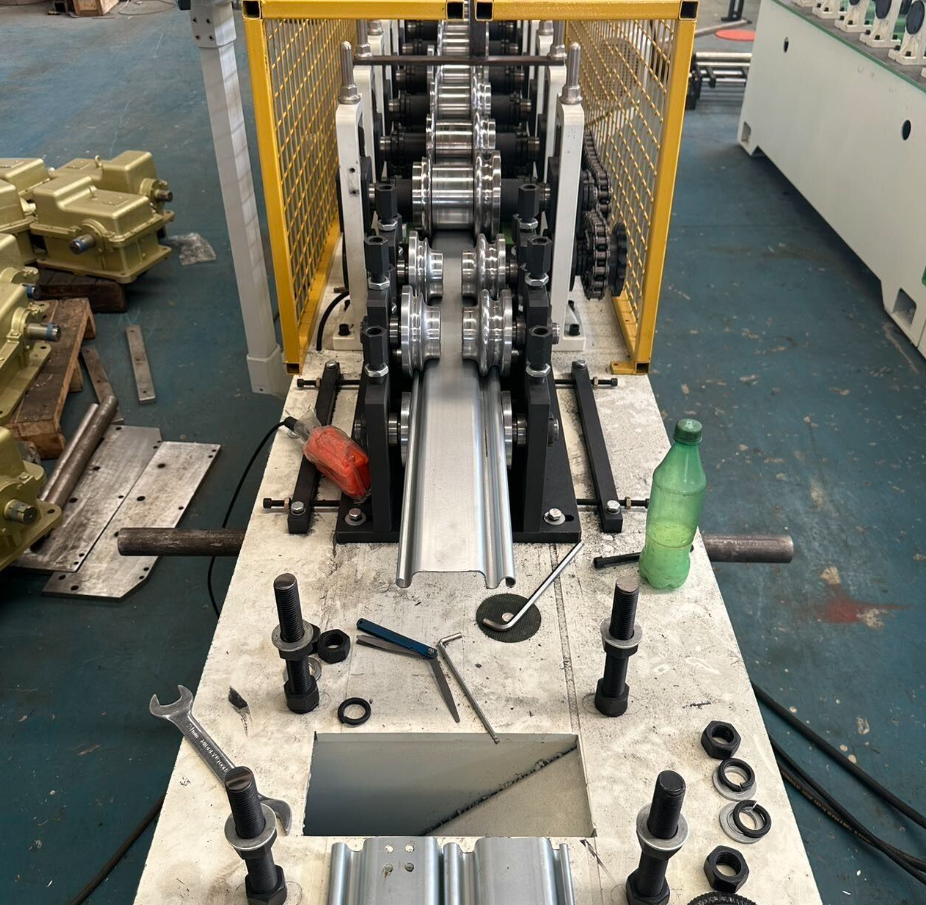
Shutter Door Roll Forming Machine – United Kingdom
Posted on Thursday, July 17, 2025
Now Available Across England, Wales, Scotland & Ireland
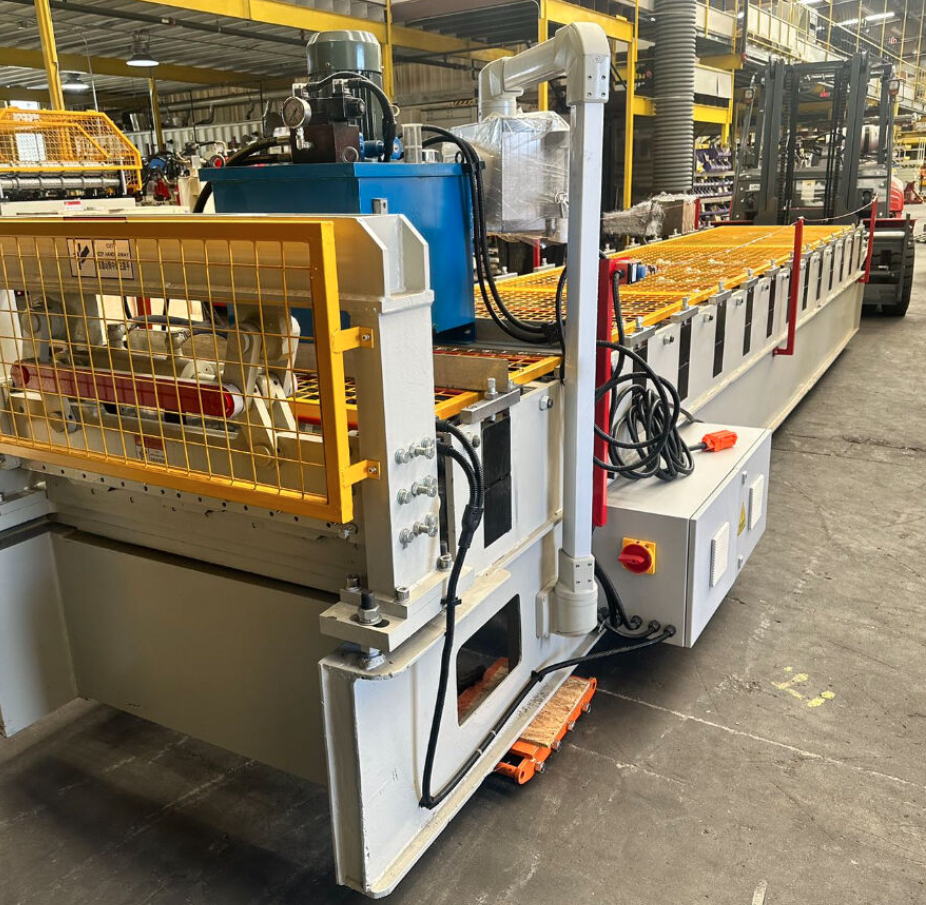
Roofing Roll Forming Machine Engineered for the UK Market
Posted on Thursday, July 17, 2025
This machine offers exceptional value and performance for manufacturers and builders in England, Wales, Scotland, and Ireland.
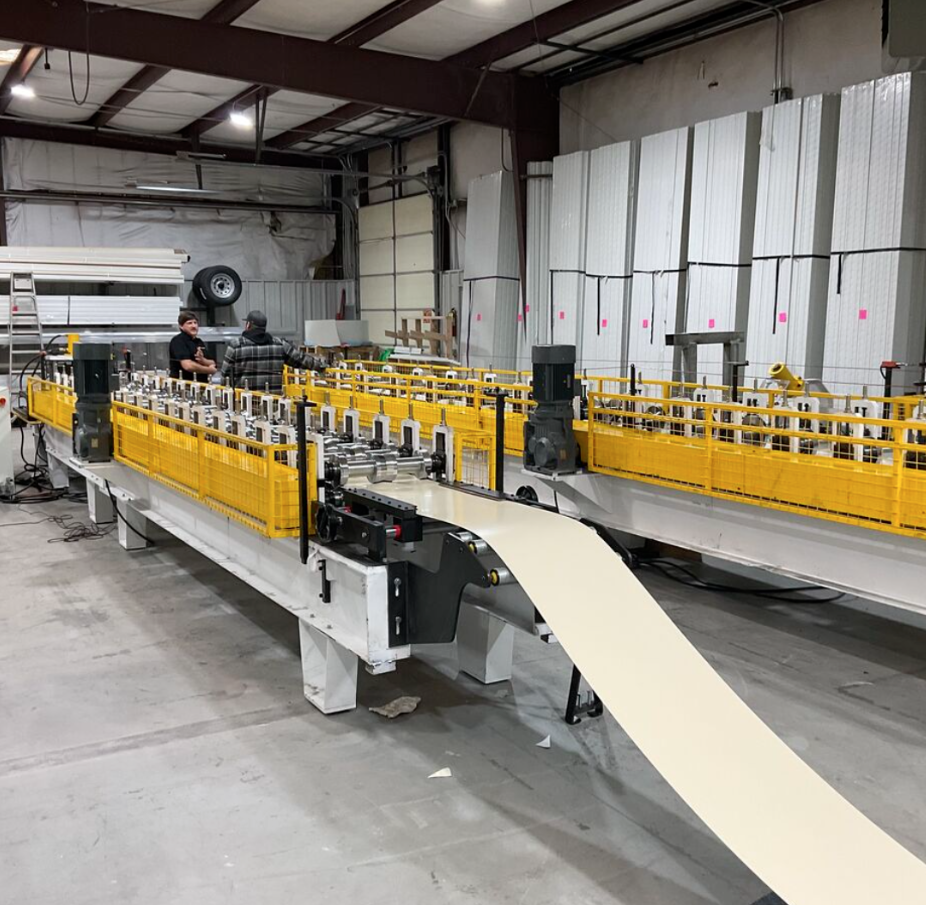
Light Gauge Steel Roll Forming Machine: Precision Engineering for the UK Market
Posted on Thursday, July 17, 2025
This machine offers a reliable solution for producing a wide range of light gauge steel profiles
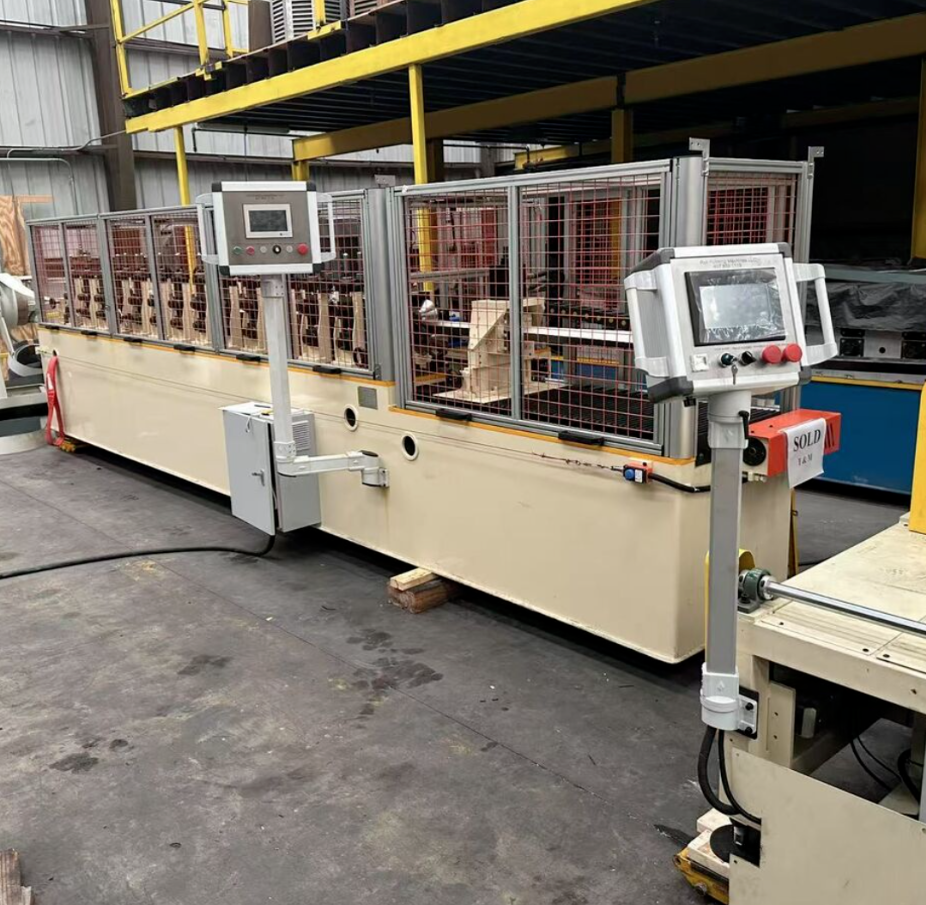
Door Frame Roll Forming Machine: Precision and Efficiency for the UK Construction Market
Posted on Thursday, July 17, 2025
This machine automates the roll forming process, shaping metal coils into door frame profiles by passing them through multiple forming stations.